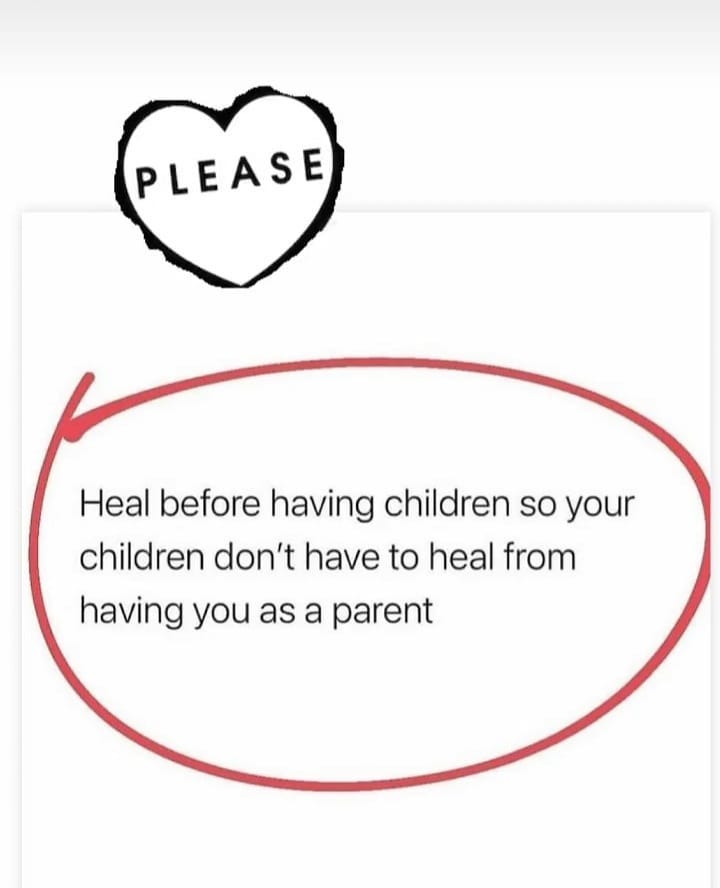
Couples need to heal from their infertility and come to grips with not being able to conceive a child before inflicting themselves on a traumatized adoptee. Much of what you will read in today’s blog comes from an adoptee writing on this issue – The Importance of Fully Grieving Infertility. I have chosen what I share here selectively and have added my own thoughts as well. You can read the original blog at the link.
Receiving a diagnosis of infertility is a devastating loss. It’s natural to feel angry, sad, disappointed or a combination of a bunch of different feelings. You may want to start the process of becoming a parent through other means as soon as possible, in an effort to fill that aching, empty space in your heart.
Please don’t start the process of adopting a child until you have fully grieved your infertility, let go of your initial dream of having a biological child, and are truly ready to adopt.
Why? Because, when you pursue adoption, your infertility journey will affect more than just you.
Adoption is not a solution for infertility. Pretending it is — without doing the hard, personal work — will just set you and your future adopted child up for failure.
You’ve probably heard it time and time again from your infertility counselors and adoption professionals. But I think you should hear it from an adoptee — someone who will be forever changed if you are unable to move forward from your losses.
As an adoptee, I’ve watched infertility take its toll on my parents, friends and family members. Even just having seen the effects secondhand, it’s clear that this is often a diagnosis that causes lasting emotional and psychological damage.
About 1 in 8 couples will struggle with infertility. That’s a lot of people walking around with a lot of pain in their hearts.
This is a loss, and as such, you may experience the stages of grief. As hard as it is to believe, this is actually a good thing, because it means you are processing your loss and are on the road to the final stage: acceptance. And only once you feel acceptance should you start considering adoption.
If you don’t resolve your experience with infertility, it could cause serious mental, emotional and physical harm to yourself and to those around you. You may start to resent your partner, your emotions might develop into depression, you risk not feeling able to find happiness because of the lingering hopes and dreams of “maybe we’ll still get pregnant,” and all of that stress can take a toll on your physical health.
Unresolved issues can affect all of your relationships — the relationship with your partner, with yourself, with your friends (who all seem to easily have children) and eventually, upon your adopted child. Moving forward into adoption under these circumstances may feel like you are “settling” for your “second-choice” way to build your family, and that’s not fair to the child you may adopt.
I don’t write this blog to promote adoption (I think it is all around a harmful choice). So I can hope that adoption isn’t your own answer for building your family. I do know that you staying stuck in grief isn’t good for you or the ones you love either. You may ultimately decide to live child-free. What is important here is seeking a good quality of life by working through your feelings and letting the unproductive perspectives go.
Adopting a child does not fix anything. There is no replacement for your original dream of conceiving and giving birth to a biological child. When you’re an adoptee, viewing the world’s preoccupation with having biological children is hard. It’s probably hard for couples who discover they are infertile. That is one of the reasons it can be hard to come to terms with the fact that you will never have a biological child. It is unfair and unrealistic to believe any infertile, potential adoptive set of parents will no longer experience grief over not having biological children after they adopt. One of the reasons I don’t believe adoptions are actually a good thing. Honestly (and adoption is ALL over my own birth family – both of my parents were adopted and each of my sisters gave up children to adoption – I wouldn’t exist but for my parents’ adoptions and even so . . . my perspective has changed over the last several years, obviously).